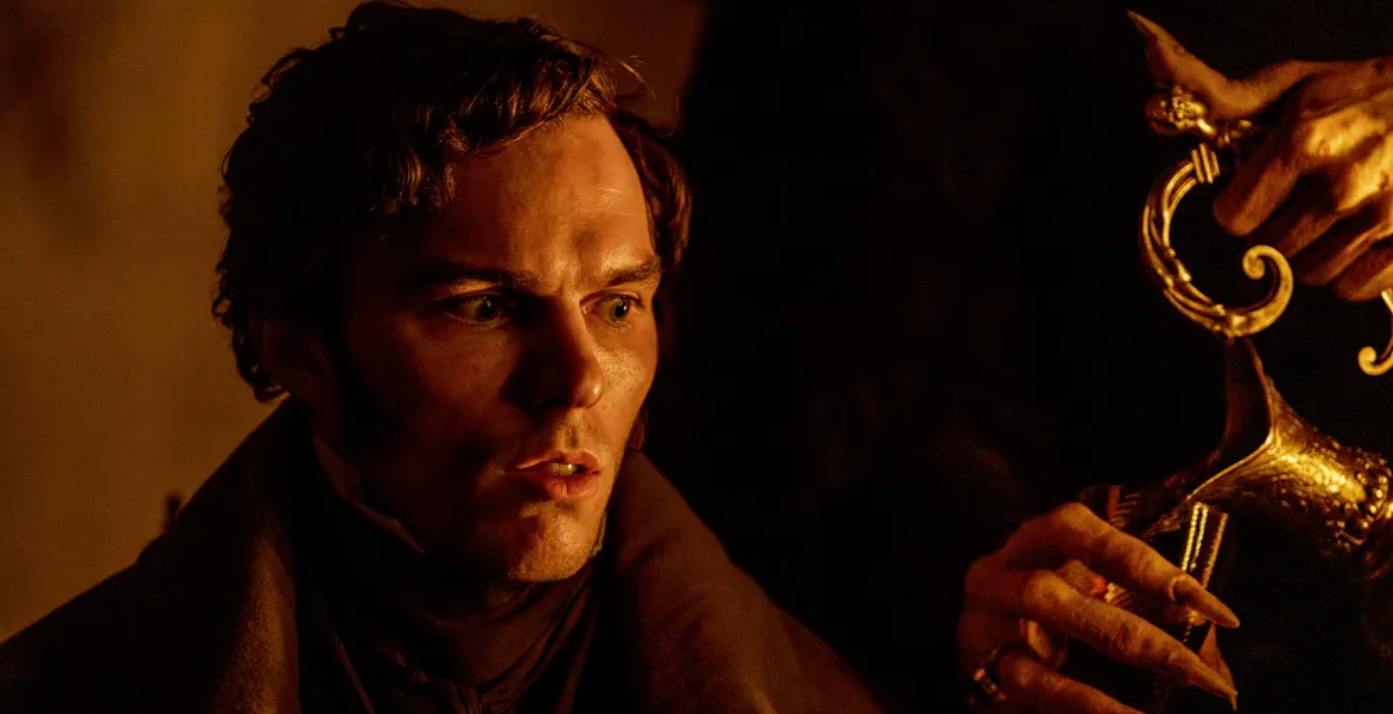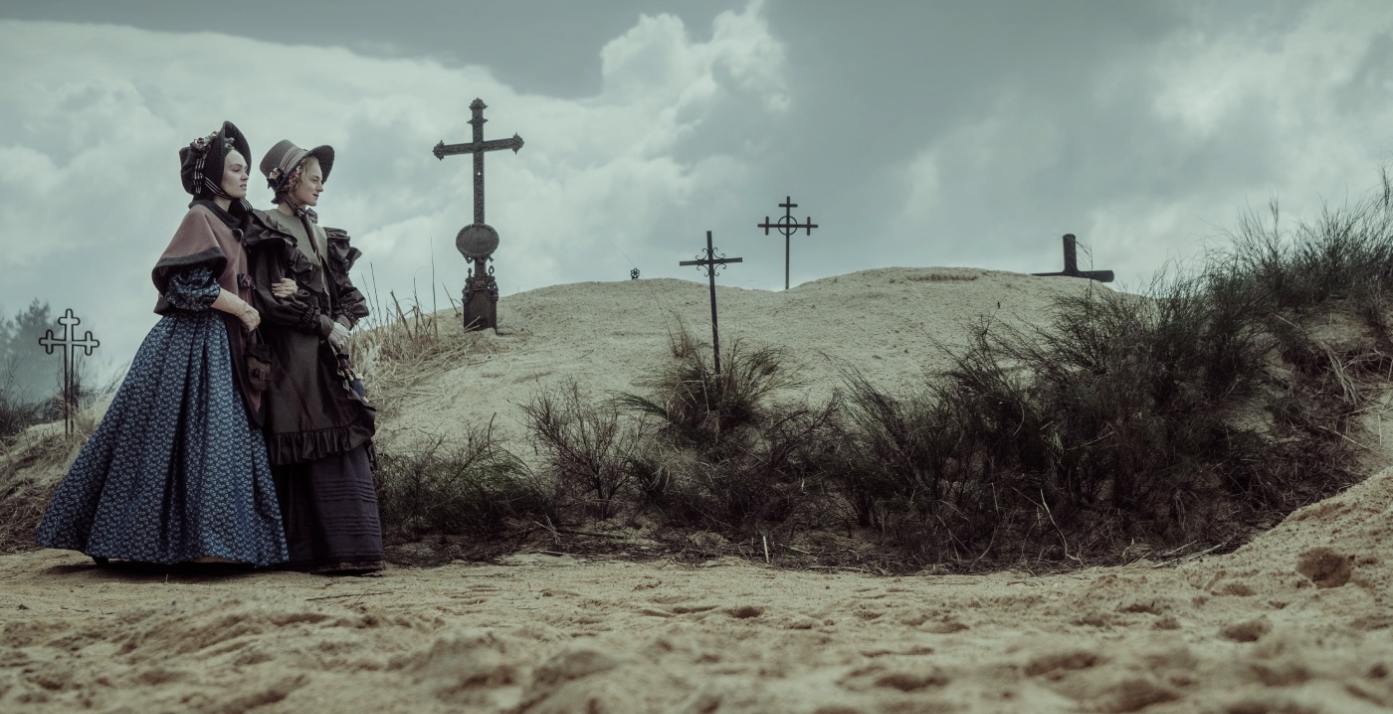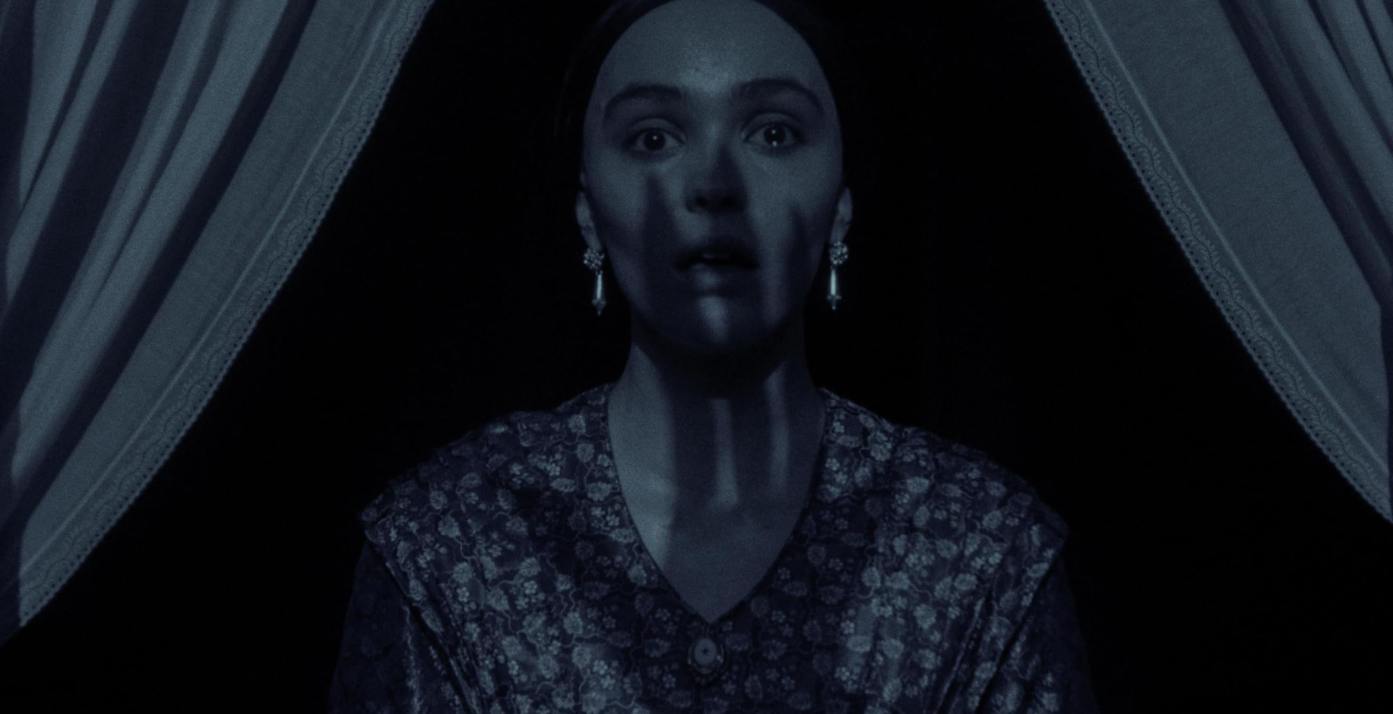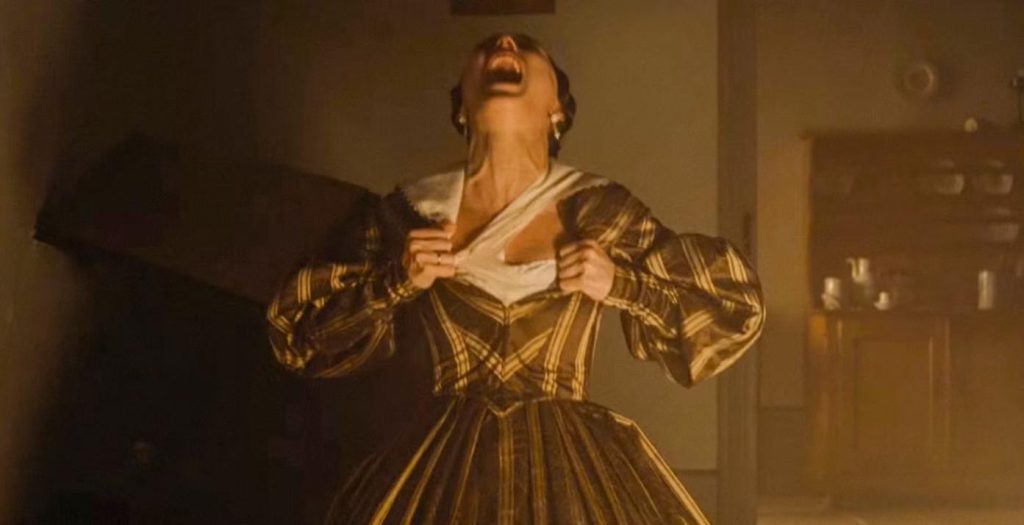Approaching Nosferatu (2024) was difficult at first. The story of Dracula, originally written by Bram Stoker, has been adapted time and time again, and the source from which writer-director Robert Eggers pulls this story is a century-old film that has aged like fine wine, inspiring the subgenre of vampire fiction to this day. But as I let myself descend into the middle path of sensual vampire storytelling and the embrace of the strange and ugly, Eggers’ take on a classic emerged as something at home in its lineage but whole in its reimagining.
It is a gothic tale of obsession between a haunted young married woman, Ellen Hutter (Lily-Rose Depp), and the terrifying vampire infatuated with her, Count Orlok (Bill Skarsgård). Romance and sex are the beating heart of Nosferatu (2024).
Whether that be from the crazed Thomas (Nicholas Hoult), under Orlok’s spell toward his wife Ellen, the grieving Friedrich Harding (Aaron Taylor-Johnson) who would rather die in his wife’s cold embrace than keep on living, or Prof. Albin Eberhart von Franz (Willem Dafoe) and his singular obsession with the tale of Nosferatu (2024), yearning and the incurable obsession that rots from it spread across the city like a blanket of rats—causing untold horror in its wake.
Robert Eggers knows where his film stands in history, and that’s why it works.

Nosferatu (2024) is a cold and decadent wonder of a film that, despite its expertly crafted costumes and scenery, is an exercise in restraint. While watching Nosferatu (2024), Francis Ford Coppola’s Dracula kept coming to mind. Not only does Eggers’ film capture the original film on which it is based, but there are also moments where Coppola’s take on Dracula’s story seems to showcase a direct impact.
However, Eggers manages to keep his artistry in its lane, running parallel to other takes on the legendary monster but always certain to remain unique. There is no reinvention here, only honoring the legacy of what came before and adding to its foundation, and somehow, that makes Eggers’ perspective endlessly important. Eggers has not reinvigorated a genre so much as he has tapped into the most basal reasons why fans are drawn to it decade after decade.
That said, the beauty and intimacy of Nosferatu (2024) aren’t only because of Eggers’ attention to detail. It’s a testament to the actors involved. Throughout the film, every character is holding something in. Each one has something buried in them, and the moments before their emotions and fear erupt are key to creating an ensemble cast worth devoting your attention to—the moments where sin and fear begin to escape the edges of their tombs.
When the actors let their restraints break, their performances accelerate. This is key to building up tension throughout the film’s long runtime. Nosferatu (2024) is a lengthy undertaking, but the quiet, sensual build-up is what keeps the audience invested in a story we have seen a thousand times.

Nosferatu (2024) carries the burden of notoriety from the start. We know what will happen and what we will see, and yet Eggers keeps us on our toes. The film features many moments that could have been made longer to shock the audience for longer periods of time. The death of the young girls could have been made to upset and unsettle. Instead, the violence in that room is shown as a glimpse, a thud of the body, all you need to know until the two tiny caskets are carried away.
In a time in cinema where more means more and less means nothing, Eggers’ ability to let the shadow and atmosphere do his scaring for him speaks volumes. I find myself feeling as if Eggers draped me in extravagance and yet held much of it back. While this is visible in his intricate sets and his ensemble cast, it is Lily-Rose Depp who brings this home.
Her hysteria, melancholy, fear, longing, and, ultimately, strength beat through the film steadily. She moves from loud to soft, from petrified to fierce, and all of it is done with a light hand that allows painful moments and horrifying revelations to hold a place that won’t be easily shaken from your memory. Ellen is not a hapless damsel, which makes this telling of a beloved classic stand tall.
Lily-Rose Depp brings Nosferatu (2024) to its peak.

Not to be forgotten either, Nicholas Hoult delivers one of the most immersive performances of his career. Thomas is a broken man, a man in love, a man manipulated, and Thomas is decaying slowly. His anger grows as his fear does, and as Ellen turns from him, he will do everything he can to save her. Only that’s not his job. Thomas’ helplessness throughout the film is central to its narrative, and it bolsters Ellen at every point.
To call Nosferatu (2024) a decadent exploration of restraint seems like hypocrisy. Yet, Eggers’s stillness allows his larger-than-life titular character, his obsession, and his violence to breathe. The quiet moments in the film allow the vibrantly violent elements to expand in their place. The deaths mean more, the fear means more, and the yearning runs bone deep.
But the near perfection of the cast and sets are slightly hindered by the simple fact that you feel every minute of Nosferatu’s runtime. No, this is not a slight against long movies. Still, it is a critique of meandering from the narrative path slightly too much in a story that we all know. When the film’s pacing loses itself, it’s when Eggers attempts to sort out the past. Yet, it always finds its way back on its path, and everything else makes this a wicked endeavor worth celebrating.
Nosferatu (2024) shows that Robert Eggers has not finished growing as a filmmaker. With each subsequent film beautifully different from the last, Nosferatu (2024) charts a path for the future of an iconic character but also establishes that Eggers is here to stay. He is deeply rooted in horror, in storytelling, and in bathing his audience in the grandeur of the damned, no matter the time period he chooses.
Nosferatu (2024) is available now on VOD.
Nosferatu was nominated for four Academy Awards.
Nosferatu (2024)
-
Rating - 8.5/108.5/10
TL;DR
With each subsequent film beautifully different from the last, Nosferatu (2024) charts a path for the future of an iconic character but also establishes that Eggers is here to stay. He is deeply rooted in horror, in storytelling, and in bathing his audience in the grandeur of the damned, no matter the time period he chooses.







